Matrix crosslinking forces tumor progression by enhancing integrin signaling
- PMID: 19931152
- PMCID: PMC2788004
- DOI: 10.1016/j.cell.2009.10.027
Matrix crosslinking forces tumor progression by enhancing integrin signaling
Abstract
Tumors are characterized by extracellular matrix (ECM) remodeling and stiffening. The importance of ECM remodeling to cancer is appreciated; the relevance of stiffening is less clear. We found that breast tumorigenesis is accompanied by collagen crosslinking, ECM stiffening, and increased focal adhesions. Induction of collagen crosslinking stiffened the ECM, promoted focal adhesions, enhanced PI3 kinase (PI3K) activity, and induced the invasion of an oncogene-initiated epithelium. Inhibition of integrin signaling repressed the invasion of a premalignant epithelium into a stiffened, crosslinked ECM and forced integrin clustering promoted focal adhesions, enhanced PI3K signaling, and induced the invasion of a premalignant epithelium. Consistently, reduction of lysyl oxidase-mediated collagen crosslinking prevented MMTV-Neu-induced fibrosis, decreased focal adhesions and PI3K activity, impeded malignancy, and lowered tumor incidence. These data show how collagen crosslinking can modulate tissue fibrosis and stiffness to force focal adhesions, growth factor signaling and breast malignancy.
Figures
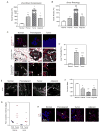
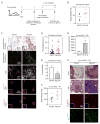
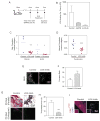
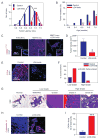
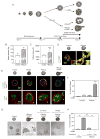
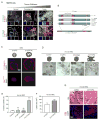
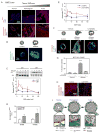
Comment in
-
Environment dictates behaviour.Nat Rev Mol Cell Biol. 2010 Oct;11(10):679. doi: 10.1038/nrm2984. Nat Rev Mol Cell Biol. 2010. PMID: 20861875 No abstract available.
References
-
- Bierie B, Moses HL. Tumour microenvironment: TGFbeta: the molecular Jekyll and Hyde of cancer. Nat Rev Cancer. 2006;6:506–520. - PubMed
Publication types
MeSH terms
Substances
Grants and funding
LinkOut - more resources
Full Text Sources
Other Literature Sources
Medical
Molecular Biology Databases
Research Materials
Miscellaneous

